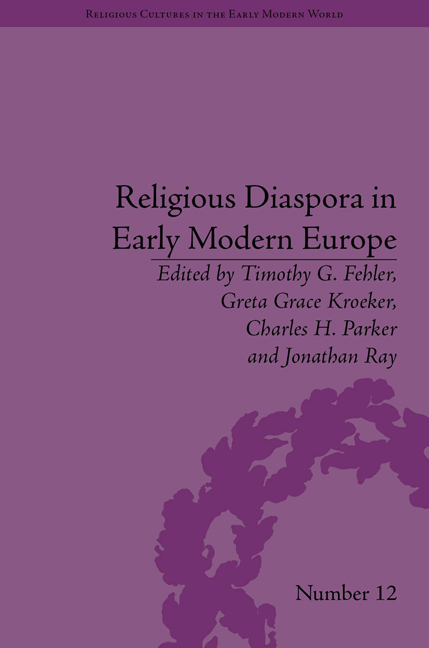Introduction
Summary
The experience of exile, with its profound sense of displacement, loss and alienation, formed a central feature of early modern life. While local religious upheavals, violence and dislocation certainly existed before the fifteenth century, the religious changes and challenges posed by the Reformation, the centralization of political power characteristic of many parts of the continent, and the first era of globalization transformed Europe's religious landscape and disrupted traditional patterns of religious practice and settlement on an unprecedented scale. Within Europe and in the many lands that came into the sphere of European influence in the sixteenth and seventeenth centuries, Jews, Moriscos, Protestants, Sectarian Baptists, Catholics and aboriginal peoples shared the common experience of living in religious exile.
As the world expanded for early modern Europeans, religious refugees scattered to destinations both near and far. The Atlantic and Indian oceans, the Mediterranean, North and Baltic seas, and well-trod travel routes across Europe provided not only pathways for trade and migration but also impetuses and opportunities to flee religious persecution and establish new communities and networks. The reasons for religious exile were as diverse as the destinations of the refugees. In the late fifteenth century, the Iberian monarchs' campaigns against Jews and Moors who refused to convert, or who failed to convince authorities of the authenticity of their conversions, led many to South America, the Ottoman Empire, South Asia and also to other parts of Europe.
- Type
- Chapter
- Information
- Religious Diaspora in Early Modern EuropeStrategies of Exile, pp. 1 - 8Publisher: Pickering & ChattoFirst published in: 2014



